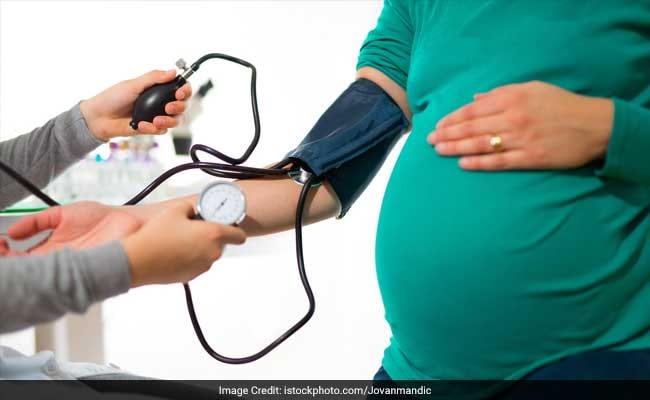
Women with high blood pressure and gestational diabetes during pregnancy are likely to experience more hot flashes during their menopause, a new study reports. According to researchers, an estimated 60 to 80 per cent of women experience hot flashes as part of menopause. Hypertensive disorders of pregnancy and gestational diabetes may be modestly associated with a greater number of hot flashes. It could be because of the cholesterol-lowering and diabetes medications, the findings revealed. In contrast, women who had never been pregnant experienced fewer hot flashes. "Women with a history of these pregnancy disorders were heavier and more likely to be taking lipid-lowering medications and diabetes medications," said lead researcher, Rhoda Conant, from the University of Oklahoma in the US. In the study, published in the journal Menopause, the team examined data on more than 2,200 women.
"With so many women affected by hot flashes, healthcare providers need to understand all the underlying risk factors that could influence hot flashes at the time of menopause," said JoAnn Pinkerton, Executive Director from The North American Menopause Society in the US.
These Are The Three Nutrients You Need To Add And Avoid During Pregnancy:
1. Have Good Carbohydrates
Pregnant women with gestational diabetes need to eat more of complex carbs or combine carbs with proteins and manage meals properly. According to Consultant Nutritionist, Dr. Rupali Datta, “Women with gestational diabetes need to have adequate carbs. The trick is to choose healthy carbs that are high in fibre and unprocessed carbs; however, this doesn’t mean they cannot have refined carbs at all. They can have 15% of unrefined carb sources, because foods like upmas and pohas are healthy.”
2. Add More Lean Proteins
Proteins should be included in your diet with carbs. This will help you maintain the perfect blood sugar balance. Lean proteins are recommended for women with gestational diabetes. Dr. Datta explains, “Proteins are very essential because when a woman is pregnant, she needs everything. It is the time when the blood components increase to take care of the growing baby. A tissue build up happens in a mother’s body, in addition to it, the tissue build-up of baby also happens. Therefore, maximum amount of the protein goes to the baby that is the foetus. This is why a pregnant woman needs more good quality of protein, which should be a combination of non-veg foods, including chicken and fish. Moreover, they need omega-3, which they can get from salmons. But, if the mother is vegetarian, she can get her protein from foods like legumes, beans and peas. Better still, a combination of all these foods is a perfect match.”
3. Consume Unsaturated, Healthy Fats
Healthy fats should be combined with proteins and carbs in a good proportion. This will work well for women with gestational diabetes by keeping their blood sugar levels under control.
Foods To Eat And Avoid For Gestational Diabetes:
These foods are what you should be eating with gestational diabetes:
Fresh seasonal vegetables and fruits, eggs, chickpeas, nuts, quinoa, seeds, avocados, whole-grain breads and cereals, non-starchy vegetables, beans, chicken, tofu, sardines, salmon, olive oil, peanut oil, tuna, popcorn, and yogurt.
These foods are what you should be avoiding with gestational diabetes:
Junk (unhealthy) and processed foods, alcohol, baked food, fried food, sugary and aerated drinks, starchy foods like potatoes and rice, and candies.
Once diagnosed with gestational diabetes, one needs to be extra careful about what they eat. After all, this is when it's not just your health which will be affected; your baby's health will be at risk too.
Disclaimer: This content including advice provides generic information only. It is in no way a substitute for qualified medical opinion. Always consult a specialist or your own doctor for more information. NDTV does not claim responsibility for this information.
Track Latest News Live on NDTV.com and get news updates from India and around the world

